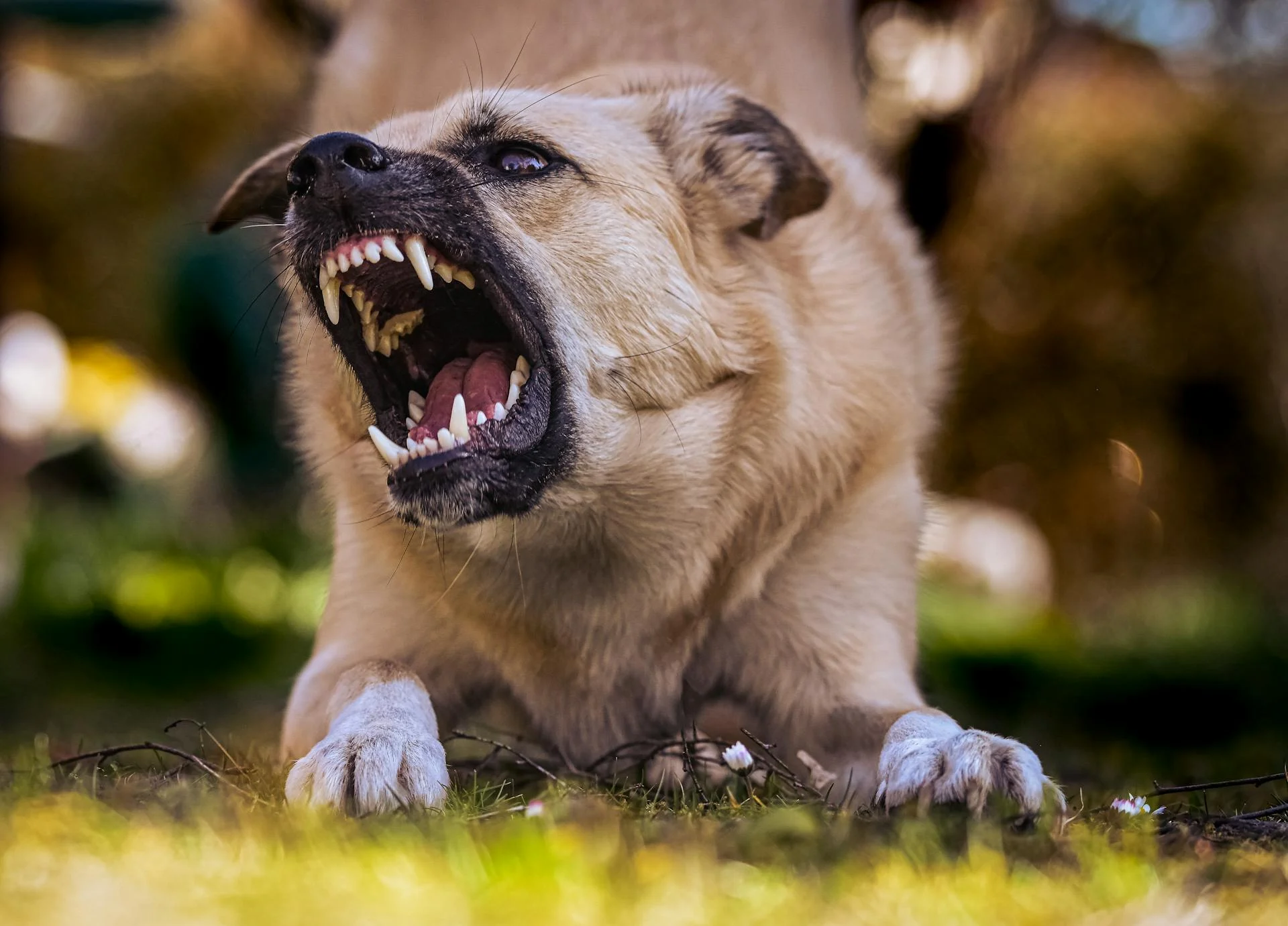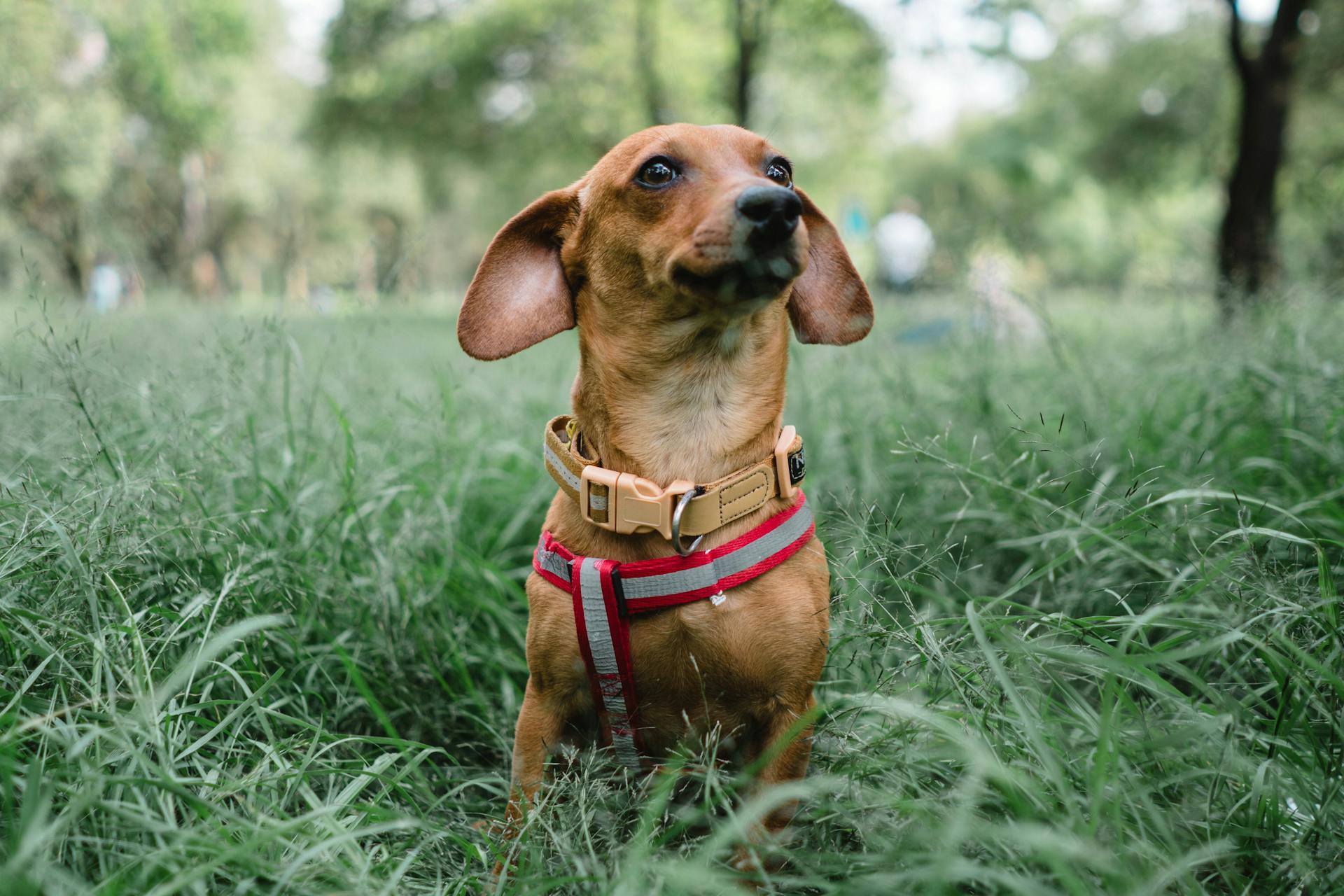
Dealing with a Black Mouth Cur's aggression can be a challenging and frustrating experience, but understanding the underlying causes can help you address the issue effectively.
Black Mouth Curs are naturally protective of their family and territory, which can sometimes manifest as aggression towards strangers or other animals.
This breed's strong prey drive and high energy levels can also contribute to aggressive behavior if not properly channeled.
With proper socialization, training, and exercise, you can help your Black Mouth Cur become a well-behaved and loving companion.
It's essential to establish clear boundaries and rules from an early age to prevent aggression from developing into a more serious issue.
Health and Behavior
Black mouth cur aggression can be triggered by a variety of factors, including genetics, socialization, and environment.
Early socialization is crucial in shaping the behavior of a black mouth cur, and improper socialization can lead to aggression issues.
Black mouth curs are highly intelligent and energetic dogs that require consistent training and exercise to prevent boredom and destructive behavior.
With proper training and socialization, a black mouth cur can grow into a well-behaved and loving companion.
Here's an interesting read: How to Train Black Mouth Cur
Warning Signs of Aggression
A glazed look in your dog's eyes can be a warning sign of aggression, often described as a 'hard stare' or 'freeze' by animal behaviorists.
A still, rigid body is another sign of potential aggression in dogs.
Certain movements, such as lunging forward or charging at the object of aggression, can also indicate aggression.
Guttural barks, snarls, or growling are all warning signs of aggression in dogs.
Your dog may also show his teeth as a sign of aggression.
A 'muzzle punch' where your dog punches you with his nose is another warning sign of aggression.
Hard nipping and biting are clear signs of aggression, ranging from nips with significant pressure to repeated bites and shaking.
It's essential to take note of these warning signs to accurately identify the specific form of aggression and determine the best course of action.
You might like: Black Husky Dogs
Temperament & Intelligence
The Black Mouth Cur is a smart dog breed that thrives on positive reinforcement.
They love outdoor adventures and are resilient, athletic, and energetic. This makes them a great fit for seasoned caregivers who enjoy the outdoors and have plenty of time for training and exercise.
These dogs can be overwhelming for first-time dog owners due to their protective nature. They're quick to let everyone know when something outside doesn't seem right, making them ideal for those who want a watchdog.
They're also playful and full of energy, even after a long morning walk. Be prepared with plenty of toys and opportunities for activity in the yard and/or indoors.
In their downtime, these pups can be laidback and easy-going.
Treatment of Idiopathic Conditions
Idiopathic aggression can't be treated with a simple solution, so the first step is to rule out any underlying medical issues with a full medical examination by your veterinarian.
A medical examination can reveal if a physical problem like a tumor is causing the behavior.
If no medical issue is found, it's time to consult with an animal behavior consultant.
They can help determine if your dog has idiopathic aggression or if it's a different type of behavior problem.
If your dog is diagnosed with idiopathic aggression, a veterinary behaviorist can provide guidance on the next steps.
Certain medications like phenobarbital may be prescribed, but experts aren't sure if they truly help or just sedate the dog.
Health and Conditions
The Black Mouth Cur is a generally healthy breed, but like all dogs, they can be prone to certain health issues. One of the most common health concerns for this breed is ear infections and disorders.
Their lifespan is relatively long, ranging from 12-16 years, which is on the higher end of dog lifespan expectancies.
Hip dysplasia is another health issue that can affect Black Mouth Curs, which can lead to arthritis and mobility problems later in life.
Progressive retinal atrophy, a degenerative eye disorder, can also impact this breed, potentially leading to blindness.
Epilepsy is a neurological condition that can affect Black Mouth Curs, causing seizures and other symptoms.
Here are some common health issues that can affect Black Mouth Curs:
- Ear infections/disorders
- Hip dysplasia
- Progressive retinal atrophy
- Epilepsy
Frequently Asked Questions
How do you discipline a Black Mouth Cur?
Disciplining a Black Mouth Cur requires positive reinforcement techniques, such as treats and praise, rather than harsh methods. Consistent training and leadership are key to establishing a strong bond and effective discipline
Sources
- https://outwardhound.com/furtropolis/dogs/rage-syndrome-in-dogs
- https://animals.howstuffworks.com/pets/black-mouth-cur.htm
- https://www.dogster.com/dog-breeds/black-mouth-cur
- https://www.dogbreedinfo.com/blackmouthcur.htm
- https://www.motherearthnews.com/homesteading-and-livestock/black-mouth-cur-guardian-dog-zbcz1608/
Featured Images: pexels.com


